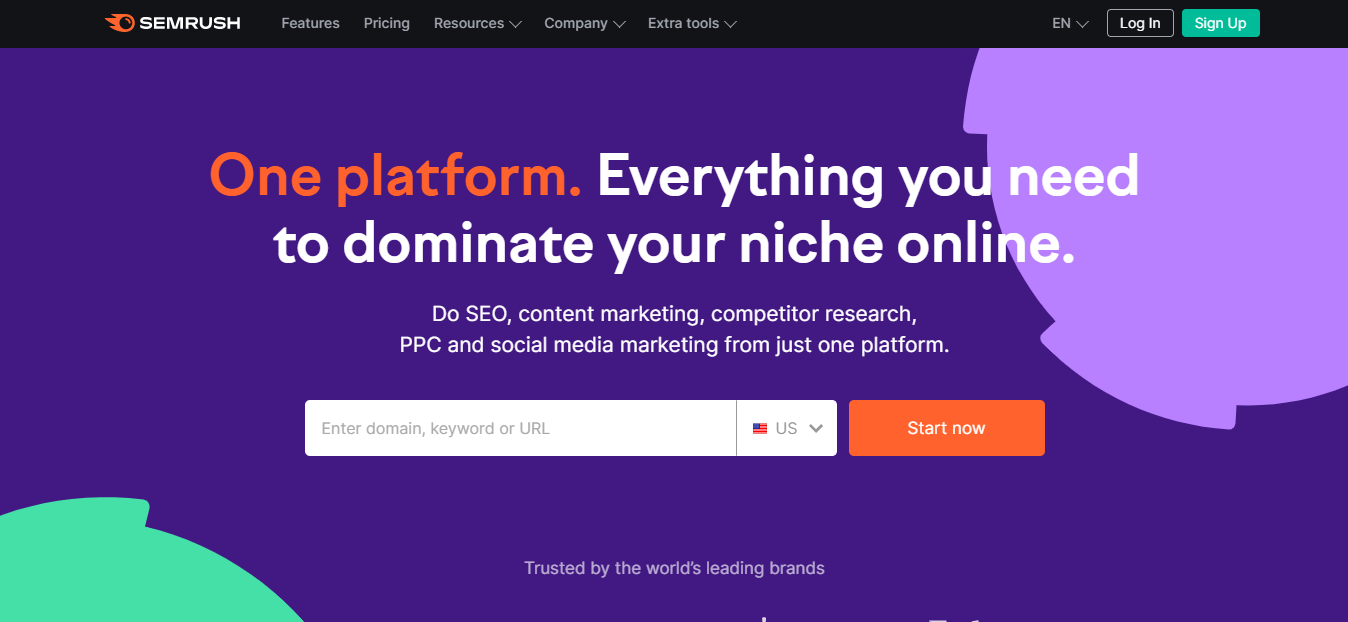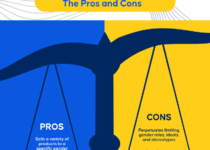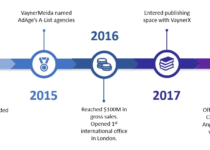Is SEO Still Valuable in 2025?
If users want to find answers to their questions, they will plug a prompt into ChatGPT. And when buyers want to shop or find recommendations and reviews, they will turn to TikTok to consume fun and engaging videos. Knowing the reality of current search behaviors, marketers may wonder if SEO will be worth it in 2025. So, is SEO still valuable in 2025?
With 99,000 searches occurring on Google every second, according to recent data from AIOSEO, search engines remain central to discovering information.
While search behaviors are transforming, SEO professionals and content creators still have important jobs. However, marketers must master current SEO technologies and trends and evolve their past strategies to fit audience needs.
Here’s how to tailor your campaign to the rise of AI-generated search results, zero-click searches, and other shifting consumer behaviors.
Key Takeaways
- SEO remains highly valuable in 2025 with the global SEO market projected to reach $86.8 billion and delivering an average ROI of 5.3x—higher than most other digital marketing channels.
- Search has dramatically evolved beyond traditional engines to include AI-driven results, YouTube, Reddit, specialized answer engines, and voice search platforms, requiring a multi-channel approach.
- E-E-A-T has become a critical ranking factor rather than just a guideline, with successful SEO strategies now requiring demonstrable experience, expertise, authoritativeness, and trustworthiness.
- Intent optimization has replaced keyword targeting as search engines increasingly favor content that directly addresses specific user intentions, with SERPs now showing up to 80% tool-centric content.
- KPIs must evolve beyond rankings to include search visibility across platforms, content performance by user intent, engagement metrics, conversion attribution, and brand search volume.
The State of Search in 2025
Before, Google dominated SEO. But now, consumers search everywhere; besides Google, they use AI search, social media, and other platforms to learn new information, find new products, and consume content.
Even Google has changed drastically over the past few years. Google’s AI Overviews now dominate search results pages, answering queries directly without requiring users to click through to websites. Voice search has matured into mainstream usage. And perhaps most significantly, search has expanded well beyond traditional engines to include platforms like YouTube, Reddit, TikTok, and specialized answer engines.
But one truth remains: people still search. A lot. According to Ahrefs’ research, 68% of online experiences still begin with a search engine. Technology may have evolved, but the behavior persists.
“The question isn’t whether search matters—it’s whether your brand can adapt to how people search in 2025.”
Market Indicators: Is SEO Still Worth the Investment?
If we let market behavior be our guide, the answer appears to be a resounding yes. According to Xamsor, the global SEO market is projected to reach $86.8 billion in 2025—hardly the trajectory of a dying channel. This growth reflects continued confidence from businesses of all sizes that SEO delivers returns worth investing in.
What’s driving this continued investment? Let’s examine how SEO compares to other digital marketing channels in 2025:
| Marketing Channel | Average ROI | Lead Generation Effectiveness | Long-term Value |
|---|---|---|---|
| SEO | High (5.3x average) | Strong for informational intent | Compound returns over time |
| Paid Search | Medium (3.2x average) | Strong for transactional intent | Stops when spending stops |
| Social Media | Variable (2.1-4.3x) | Strong for brand awareness | Requires continuous investment |
| Email Marketing | High (4.9x average) | Strong for nurturing | Requires list building (often via SEO) |
This comparison reveals a key insight: while all these channels have their place in a comprehensive marketing strategy, SEO continues to deliver exceptional long-term value through compound returns—something especially valuable in uncertain economic times.
That said, SEO investments and campaigns will vary by audience needs, industry, and each company’s overall strategy and goals.
Adapting to AI-Driven Search
While the rise of AI in search has been one of the most significant disruptions to traditional SEO, this technology does offer benefits. AI makes search engines more user-centric and efficient, improving the accuracy of SERPs. For example, Google’s AI Overviews now directly answer many queries.
At the same time, AI threatens the traditional click-through model that SEO has relied upon. Still, this challenge presents new opportunities for savvy marketers. Neil Patel Digital conducted a large-scale test across 30,000 websites, leveraging modern AI-driven content creation tools and enhancing E-E-A-T factors. Their analysis confirmed an overall organic traffic increase across the sample, reinforcing that adaptive SEO strategies remain valuable even in disruptive search environments.
How are successful brands adapting to AI-driven search? Here are the key strategies:
- Intent-optimized content that directly addresses specific user questions.
- Featured snippet optimization using structured data and concise answers.
- Authority building through comprehensive topic coverage and expert contributions.
- Content formatted for AI consumption with clear headers, lists, and tables.
- Multimedia content that appears in Google’s increasingly visual search results.
The key insight here is that while AI has changed how people interact with search results, it hasn’t eliminated the need for discovery. In fact, it places even greater emphasis on creating content that clearly signals its relevance and value to both humans and AI systems.
The New Pillars of SEO
Successful SEO in 2025 rests on several elements that differ significantly from traditional approaches. Let’s examine each of these new pillars.
E-E-A-T as a Ranking Factor
Google’s emphasis on Experience, Expertise, Authoritativeness, and Trustworthiness (E-E-A-T) has evolved from a guideline to a critical ranking factor. This is particularly evident in health, finance, and other high-stakes industries.
MedPark Hospital demonstrated this principle effectively when they implemented a comprehensive SEO strategy by creating thousands of multilingual, audience-tailored pages, using hreflang attributes, and aligning content with every stage of the patient journey. The results were impressive: Thailand-based keyword rankings tripled year-over-year, US keyword rankings grew from nearly zero to 206,000, and over 250,000 organic visits were generated by their English-language pages in a single month, according to AIOSEO.
This success wasn’t merely about keywords—it was about establishing genuine medical authority through comprehensive, expert-validated content.
Search Intent Optimization
The days of keyword density and exact match targeting are behind us. Today’s SEO success comes from understanding and addressing the underlying intent behind search queries.
Search intent is the purpose behind a query. Instead of solely focusing on ranking factors, marketers must align their content with search intent. That also means marketers must find keywords and linking opportunities that coincide with audience needs.
Technical SEO
While content quality remains paramount, the technical side of search engines has become increasingly sophisticated. Core Web Vitals, mobile-first indexing, and schema markup have evolved from “nice-to-haves” to essential requirements. Meeting these technical SEO standards is integral to achieving high organic rankings and allowing AI bots to crawl your content and display it on AIO and similar results.
Multi-Channel Search Presence
Perhaps the most significant shift in SEO is the expansion beyond traditional search engines. “The new SEO” approach must include:
- YouTube optimization (the world’s second-largest search engine).
- Reddit visibility (increasingly prominent in search results).
- Visual search optimization (for Google Lens and similar tools).
- Voice search (for Alexa, Google Assistant, etc.).
- Specialized answer engines like Perplexity and You.com.
This multi-channel approach recognizes that “search” now happens across a diverse ecosystem of platforms, each with its own algorithms and user behaviors.
Measuring SEO Success in 2025
As search behavior has evolved, so too must our KPIs. Traditional metrics like keyword rankings and organic traffic still matter, but they tell an incomplete story in search success.
Modern SEO KPIs focus on:
- Search visibility across all relevant platforms (not just Google).
- Content performance by user intent and journey stage.
- Engagement metrics that indicate value delivery (not just clicks).
- Conversion attribution that accounts for SEO’s assist value.
- Brand search volume as an indicator of awareness impact.
These metrics reflect a more sophisticated understanding of how SEO contributes to business outcomes beyond traffic and rankings.
Real-World Success in Modern SEO
Nothing demonstrates modern SEO effectiveness like real-world results. Consider these case studies.
MedPark Hospital: Multilingual SEO Drives Global Growth
Faced with fierce competition in the medical tourism sector, MedPark Hospital leveraged comprehensive, multilingual SEO to dramatically expand its reach. They created thousands of expert-authored, audience-tailored pages with proper hreflang attributes, and they saw Thailand-based keyword rankings triple year over year while US keyword rankings grew from nearly zero to 206,000.
The key insight from their success is that SEO’s value increases exponentially when it aligns with business expansion goals across markets and languages.
Neil Patel Digital: Adapting to AI Disruption
When faced with declining organic search traffic triggered by the rise of AI overviews and zero-click search results, Neil Patel Digital conducted a large-scale test across 30,000 websites. After leveraging modern AI-driven content creation tools and enhancing E-E-A-T factors, they confirmed an overall organic traffic increase across the sample.
Their approach demonstrates how SEO can adapt to seemingly existential threats through strategic evolution rather than abandonment.
Implementing Future-Proof SEO Strategies
Based on current trends and case studies, here are the most effective approaches for organizations looking to leverage SEO in 2025 and beyond:
| Strategy Component | Implementation Approach | Expected Outcome |
|---|---|---|
| Content Development | Focus on comprehensive topic clusters rather than individual keywords | Improved topical authority and broader search visibility |
| Technical Foundation | Prioritize Core Web Vitals, schema markup, and mobile optimization | Better rankings and inclusion in enhanced search features |
| E-E-A-T Signals | Incorporate expert authorship, citations, and transparent methodology | Increased trust signals and authority perception |
| Multi-Channel Presence | Optimize for YouTube, Reddit, and specialized search platforms | Extended reach across the complete search ecosystem |
| Measurement Framework | Track engagement, visibility, and business impact metrics | Better attribution and ROI demonstration |
“The most successful SEO strategies in 2025 aren’t about outsmarting algorithms—they’re about deeply understanding and serving user needs across every platform where search occurs.”
The Future Outlook: SEO Beyond 2025
The future of SEO is dynamic and filled with opportunities. Certain search behaviors, such as voice, AI, and visual search, will become more popular and sophisticated.
Looking ahead, specific trends will likely shape SEO’s evolution:
- Further AI integration in both search algorithms and SEO tools
- Increased personalization of search results based on individual behavior patterns
- Greater emphasis on first-party data as privacy regulations evolve
- Voice and visual search are becoming more prominent in specific contexts
- Decentralization of search across specialized platforms and AI assistants
Far from diminishing SEO’s value, these trends suggest that the discipline will continue to evolve and potentially increase in importance as digital discovery becomes more complex and fragmented. But one thing remains the same: content creators must continue emphasizing relevant and valuable content.
Is SEO Still Valuable in 2025? The Short Answer: Yes!
AI, social media, and voice assistants have all altered the way we find information. So, is SEO still valuable in 2025? The evidence strongly suggests yes, but with important caveats. To rank organically, marketers must prioritize user experience, content strategy, technical optimization, and multi-platform visibility.
As with many aspects of digital marketing, the key lies not in questioning whether the channel works, but in developing additional expertise to make it work. Organizations that adapt will continue seeing significant returns from their SEO investments, but those clinging to outdated tactics will experience diminishing website traffic and visibility.
Are you struggling to adapt to modern SEO needs? Work with the leading SEO agency that understands how to adapt to these evolving trends while driving measurable results.
The post Is SEO Still Valuable in 2025? appeared first on Single Grain.


